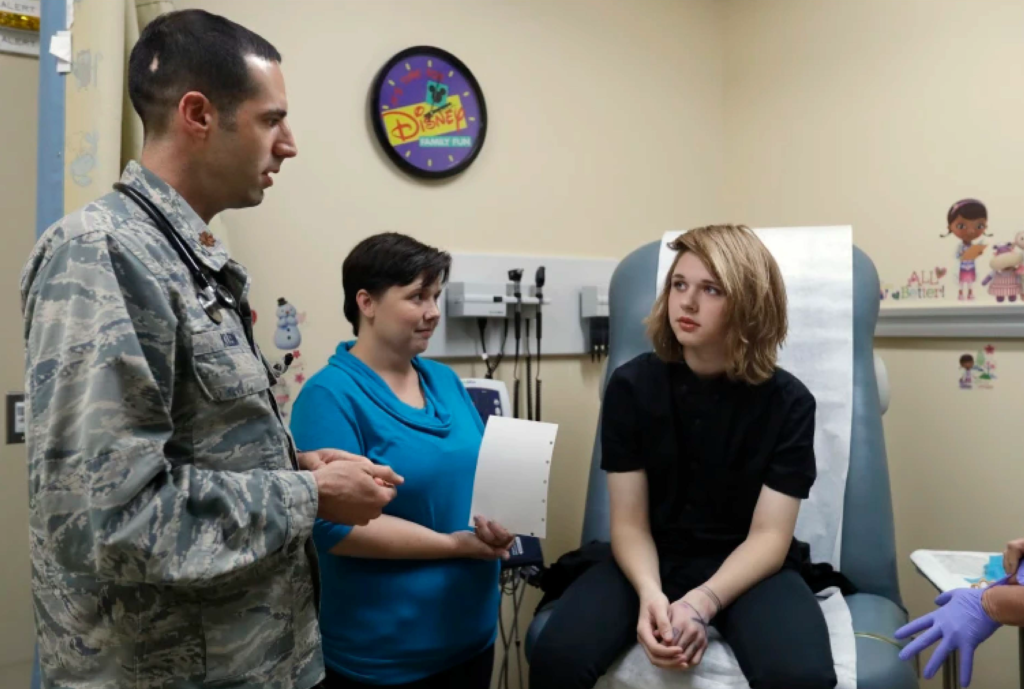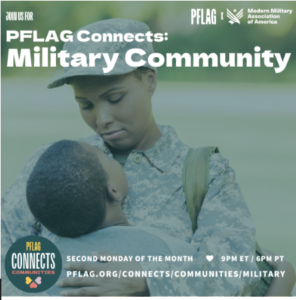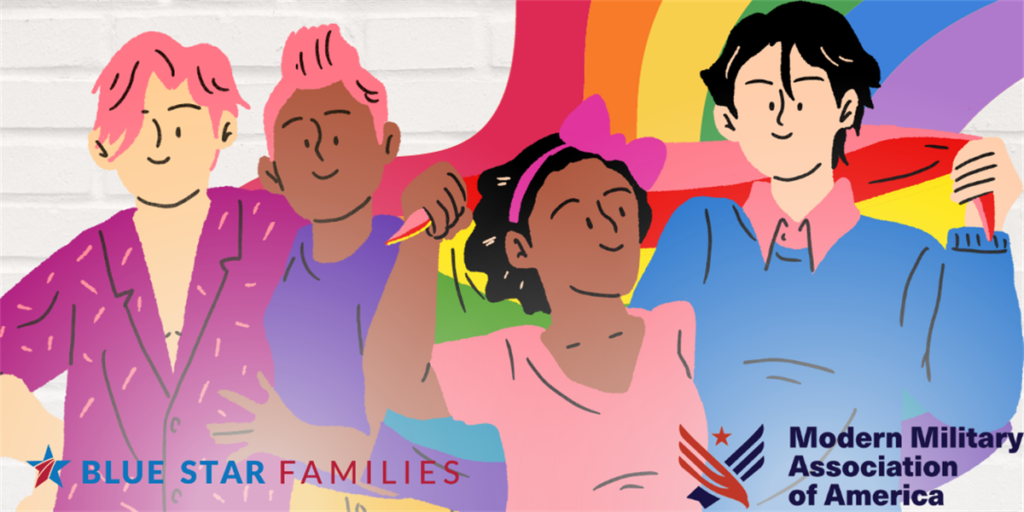MilPride Advocacy and Support
MilPride was founded in 2018 by Amanda Brewer and Jessica Girven, military mothers of transgender youth who had to face challenges and discrimination while navigating the military system. The program was part of the American Military Partner Association (AMPA), one of the organizations that merged to form MMAA in 2019.
The program’s genesis came when Jessica’s daughter, Blue came out as trans. In 2016, at 10 years old, she successfully fought for the right to use the bathroom matching her gender identity at her school on Ramstein Air Base in Germany. The family had to fight again for Blue to access puberty blockers, which base doctors refused to prescribe. She crowdfunded a trip to a Virginia military base where Blue could receive treatment and where the family first met Jessica and her trans daughter, Jennifer.
“After my daughter, Blue, came out as transgender, we felt very alone on this path. It was meeting other kids and military families like ours that empowered me to advocate for Blue and these families. We never want another family or LGBTQ kid to feel alone again.”
– Jessica Girven, U.S. Air Force military spouse

Jenn Brewer (R) with her mother, Amanda (L, back), and Dr. Klein (L, front). Photo Credit: Jacquelyn Martin/AP
Amanda’s family was facing issues similar to Jessica’s family when her daughter Jennifer came out as transgender at age 12. Jennifer came out before military family members were allowed to have trans-related medical care. Amanda had to get an off-post medical referral for the behavioral health and gender clinics at the children’s hospital. They initially denied her request, but Amanda persisted, telling them there was no alternative. Eventually, the family was introduced to Dr. Klein, the adolescent medicine doctor at Fort Belvoir who was one of Jennifer’s biggest cheerleaders.
“As a military family whose daughter came out before many transition-related services were covered by Tricare, our family struggled to find resources and support. I don’t want other military families to struggle like we did. I want to help fill in the pieces as much as possible so they can move forward on a much smoother path.”
– Amanda Brewer, U.S. Army military spouse
PFLAG Connects: Military Community!
These safe, virtual, moderated monthly meetings, are in partnership with our friends at PFLAG. Meetings are open to parents, family members, and members of the LGBTQ+ community who are also part of the military community. Each meeting is led by current/former service members or military spouses who will guide you in receiving support, giving support, and finding resources to help you, your family, and your community.
Spaces for Belonging
in partnership with Blue Star Families Chapter | National Capital Region
Spaces for Belonging is a monthly meetup-style program where military youth & teens (ages 13-19) who identify as LGBTQIA+ can come together to build community, foster friendships, learn, play, bond and find support with other military youth in the community. Allies & non military LGBTQIA+ friends are also welcome!



